Are you a Quiet Speculation member?
If not, now is a perfect time to join up! Our powerful tools, breaking-news analysis, and exclusive Discord channel will make sure you stay up to date and ahead of the curve.
Most of my profits on Magic come from two sources: collections and bulk rares. These sources synergise: collections tend to come with a ton of bulk rares while the fancier cards resupply my trade stock – so I can trade for more bulk rares. I don't need to pick up a lot of collections to keep this going, so I tend to be picky on which collections I make a move on. I'm generally looking for those that help me with my own collection or that are particularly well priced. In The Netherlands, we have something similar to Craigslist called Marktplaats ("market place") which is the primary source for collections for most. You get a lot of competition there, though, and bids go crazy high. I tend to keep an eye on it, but it is extremely rare for me to buy a collection using this service.
Instead, I find collections through personal connections, mostly through non-Magic oriented tabletop-game clubs, and through my own Dutch Magic forum for which I have written some guides on collection selling with a standing offer of helping people out if they contact me by email. Obviously, this gives me first pick on whatever comes by, so it's a pretty good setup for me. I'll treat them honestly and fairly, though I don't aim to give them the best possible price: just a price that ranges from fair to good. This brings in somewhere between five and ten collection sellers per year, and I generally end up buying about two or three collections of various sizes. I pretty much buy everything I decide to travel to for a closer look.
Initial Posting
On the 20th of December last year, a guy posted on my forum that he was selling the collection of his deceased son. He didn't know much about Magic himself and offered a reward of 25 percent of the sales price, with a maximum of €500, for someone to help him get the collection ready for a sale. I was the first to respond, offered to help and indicated that I might potentially be interested in buying it myself. After all: that's a 25 percent discount for work I would have to do after buying a collection in any case. I pointed him towards one of my guides, asked some questions and explained a few things about selling his collection.
He estimated that there were about 20,000 cards, a number that turned out to be pretty accurate, and said that the cards are mostly stored in binders sorted by set. According to him, little had been played with, as his son mostly collected. He mentioned that it starts at the "fifth generation," whatever he meant by that (I assume Fifth Edition). I told him a little more about what he could expect, warning him that sets from around the time of Fifth Edition tend to have a few expensive cards and a lot of bulk. I asked for some pictures so that I could get an idea of what he is selling.
There was silence for a while, but he promised to get back to me in January with the pictures I asked for. It remained silent so I eventually followed up, but as I got no response, I ultimately forgot about it.
Picking a Date and Preparations
On March 2nd, I got an email back as he's gotten back to his sale plans. We agree on a date for me to visit and he shares some pictures. I won't show you them all, as I believe the one below gives most of the information in any case.
We see a few things here. On the left there is a sizable stack of Inquests and all 3 Encyclopedias. There is some other literature too. Now you should know that at the time these were printed, I rarely bought magazines because they were fairly expensive on a teenager's budget. This guy apparently bought them regularly and went beyond that, suggesting a fanatical collector. Another thing to note is that these are set-branded binders, something I did not pay a lot of attention to myself, but I have since learned that these tend to go for about €15 to €25 each. Naturally, these weren't cheap at the time either. Finally, observe that the binders look pretty full. The rest of the pictures showed that there are some cards outside of the binders, but relatively few.
We agreed to meet on Saturday the 4th. The Friday night before the meeting, a collector and amateur dealer I know contacted me to ask whether I had plans for the next day. As we were going to get together to trade at some point, I initially assumed that's what he was asking about. Instead, it turned out that my seller put his collection on Marktplaats, and after this guy responded to his ad, the seller asked him whether he knows me, and if so, whether I am trustworthy. I don't mind a reference check and I appreciated the heads up, but I was a little annoyed with the seller for not telling me that he created the ad.
I explained that yes, I was planning to look at the collection the next day and that I meant to help the seller by filtering out interesting cards, giving a value estimate, and if it's interesting for me, making an offer. I also told him that the arrangement I have includes a percentage of the sale price for me. The other collector clearly saw this as an opportunity: he proposed that we try not to get into a bidding war and instead work together so that we don't end up paying more than needed, possibly dividing interesting parts of the collection between us. I stressed that I would be fair with the seller, but that I would not be opposed to seeing if we can work something out if either of us ends up buying it, as we (partially) have different interests when it comes to collecting (he really likes the binders for example, I don't care for them). I promised to share pics of what's in the collection if possible. The next morning I realized that the seller may tell me that he did a reference check, so I asked the collector what he thought I should say in that case, but he didn't respond in time.
The Deal
I arrive and the seller is ready and waiting. He mentions that he placed the collection on Marktplaats and already had someone visit based on that. This potential buyer said he would pay €2000, but ended up offering him €400, which clearly annoyed the seller and made him lose faith in Marktplaats respondents. He also mentioned that he asked somebody who made a bid whether he knows me and that they confirmed that I was trustworthy. At this point I could do one of two things: ask who he spoke with (lie) or tell him I know. What would you do?
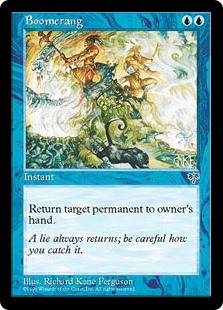
I don't lie. I can present all sorts of reasons why going for one option over the other would be better. It's not clear cut, but to me, the choice is obvious simply because I will not lie. So I told him that I know and share that this other guy is a fellow collector who buys collections for resale, just like I do. We didn't discuss it further, though I did mention later that the other guy really likes the binders and that I would likely sell them to him.
The seller started explaining that the situation is a little different from how he presented it online. I don't think it's right to share his story as it's quite personal, so I won't do that here, but suffice to say that it makes sense that he presented it differently. His story explained why many of the more expensive cards I might have expected in the collection were unfortunately gone: they were sold off in the late '90s. After discussing this, I dove in.
I will not bore you with too many details: I basically went through the binders and cards to pull out anything worth showing if you want to sell the collection. Good uncommons, decent and good rares, the three worn Beta commons because they would look interesting, etc. The seller took a picture after every set. It was clear that pretty much everything desirable during the late '90s was sold, so I found a City of Traitors and Lion's Eye Diamond (which were not popularized until years later), but no Morphlings or Serra Avatars. As I went through, I talked with the seller about selling collections, about Magic in general and about his story. I confided that I was not sure on foil prices, but that I would look them up for cards that seem relevant and show him what I found (the foil Academy Rector for example). Unfortunately, the seller never left the room and took his own pictures, so I only had a chance to update the other collector during a toilet visit. I told him most of the high-end stuff was gone, but he didn't really seem to believe me.
Ultimately, I got through the collection and to the point of making an estimate. I gave him both an indication of around €1150 for the higher-end stuff and a total of €1500 for everything (keeping in mind the binders' value too). I also told him that he may possibly get more if a bidding war ensues. He asked what I would bid, and I explained that with the arrangement he proposed, I would be okay paying him €1200 (I felt 25 percent was really high for the work, so I decided to round up rather than down to €1100). He immediately extended his hand, said that that was exactly the price he was looking for and wished me good luck selling it on for a nice profit.
We packed the collection into my car and I drove off. I parked a few blocks down and messaged the collector. He didn't believe many of the higher-end cards were gone; he thought I bought it too cheap and felt cheated out of the collection. After the seller contacted him, he was pissed at me for telling the seller that we had contact, then he blocked me.
I was intending to make him a deal on the binders and to see if we could work something else out for some of the other stuff, but obviously I won't be doing that at this point. I got the impression that he somehow felt entitled to get this collection, even though I was very clear on wanting to provide the seller a fair estimate and on making an offer myself if the collection was interesting to me.
Is it me or is it pretty crazy to expect others to lie for you when you are proposing shady practices?



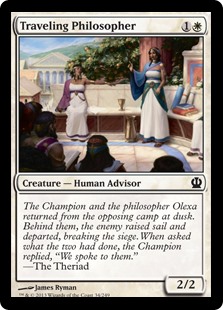

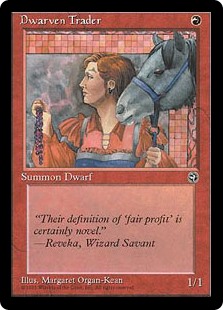
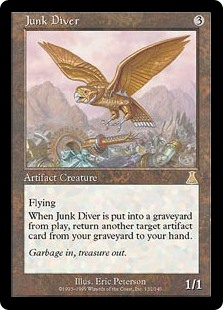
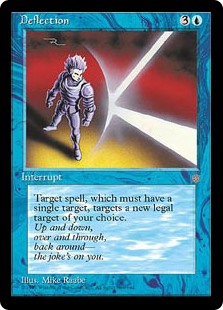



Your story makes me think twice about communicating with other potential buyers. As if finding and buying collections was not already challenging enough. I would not have lied either and would just assume the other buyer exists for the purpose of testing your patience (we are all blessed with these types of people and encounters) and carry on the best you know how.
I think giving them a heads up on the ref-check is fine. I even think it’s ok to expres interest in part of a collection, as long as you’re clear on that you’re both still interested in it. What goes too far is to try to manipulate the price.
The only thing I am concerned about it that he might try to get back at me in some way. There aren’t too many high end collectors in The Netherlands, I am bound to run into people he knows. I’m sure he gives his own twist to it when he tells them this story.
Whoever the person is that was trying to do the shady practices is doing you the favor by blocking you. Those people are not welcome in this community (or any community for that matter). I would honestly consider exposing that person to other larger Magic collectors to warn them about the possibly of his/her actions. Don’t feel bad – it sounds to me like you did the right thing.
I don’t really like to expose people as that may easily backfire. He makes assumptions about the way I was thinking and concludes I tried to screw him over, when I would expose him I would basically also assume I can read his mind. He was definitely proposing shady practices, but, I’ll give him the benefit of the doubt in regard to whether he realized (though I do suspect that he did I can’t be sure).
I definitely feel like I did the right thing, no concerns there. Just don’t like making enemies
Expose was a strong term no doubt. Your article fired me up to start the morning haha but in all seriousness without using the word expose it may be prudent at least to warn your close-knit group. Word doesn’t have to spread from you for it to spread at all. It’s important to keep people like this at bay because they give the community a poor reflection. I personally have always felt the Magic community is one of the more honest and friendly in the “Gaming” world.
I understand what you’re getting at, but I know very few who would have a chance of running into him as most are very casual players and he lives fairly far away. I wouldn’t mind telling the others, but I doubt it’ll matter. I’m fine leaving it at this.
Agreed. Being able to look yourself in the eye every morning is a lot more important than making a few quick bucks.
Thanks, it definitely is.
Do they even call them “bucks” when the currency isn’t USD?
Euri. Pleuros. Pegels. Doekoe if you want to go with street slang. We have our own words.
Doesn’t really matter though. At least in (American) English it makes sense as an expression. I may or may not use “bucks” when speaking English, depends on the context and audience. As slang it’s less likely that non-native speakers have picked up on it, but it’s far more common than most slang, almost to the point that it could be considered part of the language.
At the very least it would be safe for David to assume that I know what he means.
Great article! It’s interesting that the other collector assumed the worst about you. It speaks to their perspective on things, in that they were proposing to ‘collude’ around the collection, but when that didn’t work out felt they must have been cheated in some way.
Thanks!
In Dutch we say “zoals de waard is vertrouwd hij zijn gasten”, which (literally) translates to “the way the innkeeper is, is how he trusts his guests”, meaning something similar to how “it takes one to know one” is used when someone accuses you of something. This is one of the first things I thought of.
During our pre-buy chat I also got the impression that he considered himself the more established buyer and that “small fry” like myself should not get in the way. Which I politely ignored at first and I then said that he was probably underestimating my buying power. I don’t think I convinced him then, but perhaps I have now.
To most on the Dutch scene I am a relatively unknown player because I tend to aim internationally. Most of the shop owners know me, but few of the backpack traders. I’m ok with that, I generally prefer the underdog position.
Just a reminder that we only hear one side of the story.
it’s pretty clear you are convinced about your side of the story and how you presented yourself to the other buyer.
BUT it’s clearly that your intended image didn’t successfully reached the other buyer.
To learn something from this, both for you and for us, it would be better to reflect on your own actions.
You focus too much on the other guy.
Your conclusion is: I have more integrity than the other guy.
You can’t change his attitude, but you can focus on what you can do in the future to prevent this.
1. you are convinced about your own clear communication towards him, but he clearly didn’t got that. Maybe you was not clear enough to check if he really understand your intentions? It seems he had the impression that things were going to happen like he had planned.
Lesson: always check if the other clearly understands you.
3. you texted him during the visit, and you got your first signal something was wrong in his perception. It’s a classic one (people have wrong perception in message).
Do you think that calling him at that point could have saved you both from further frustrations?
Lesson: identify signals of miscommunication and act to prevent escalation.
and as final conclusion:
It’s unfair to make a personal story public and not giving the other person a change to defend himself. If he ever finds out, you will have bigger problems with him.
You don’t give a name, but enough details that someone may be able to identify him. You don’t want to be responsible for an online witch burning (I don’t think this will happen, but things can escalate quickly).
So you are making things worse in my eyes.
(Note: the above comment was just approved as I discovered it was hanging in limbo; I forgot to switch back to my writer account).
1. I agree. I would argue that his expectation was strange to start with though. I certainly think that communication problems work both ways, however there were no signals that we had a misunderstanding until things went wrong. I could’ve certainly tried to communicate more clearly and did in fact try multiple times to explain my position, to which he did not respond (beyond unfriending me).
3. I was not in a position to call him as I was just making a toilet visit at the time, about 5 meters away from the seller. I certainly think that calling would’ve helped with the perception, but it was not a posibility at that point. It also didn’t help that I felt that I couldn’t share the seller’s story.
Unfortunately I received the signal of miscommunication at a point when there was little I could do about it.
I don’t believe it’s unfair to make a personal story public; writers would have very little to write about if so. If he was open to discuss I would’ve never written about it in the first place but instead would’ve tried to resolve it with him. I would still be.
By closing the dialog he’s just as guilty of making things worse. I believe that for me writing about it helped me deal with it and that the story has benefits for my readers. I don’t think there’s a big risk of him being identified and an even smaller chance of such a witch burning. Now you could certainly argue that anything that makes things worse is something to be avoided, I am however still human.
You make some valid points and possibly I could’ve reflected more on the content of the article or my actions. In many ways this has been a learning experience for me.